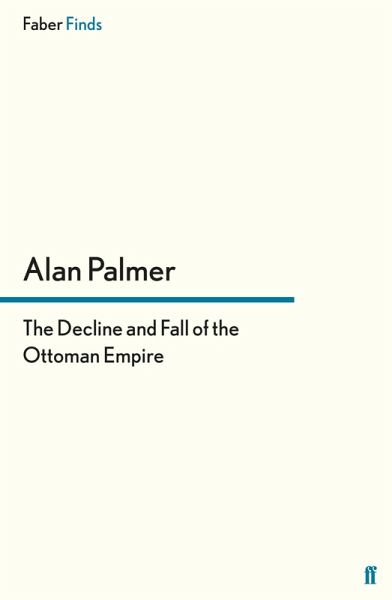
The Decline and Fall of the Ottoman Empire (eBook, ePUB)
Versandkostenfrei!
Sofort per Download lieferbar
21,99 €
inkl. MwSt.
Weitere Ausgaben:

PAYBACK Punkte
0 °P sammeln!
Like Charles II, the sick man of Europe was 'an unconscionable time dying.' Time and time again from the seventeenth century observers predicted the collapse of the Ottoman Empire, yet it outlived all its rivals. As late as 1910 it straddled three continents. Unlike the Romanovs, Hohenzollerns or Habsburgs, the House of Osman was still recognised as an imperial dynasty during the peacemaking which followed the First World War. This book offers a fascinating overview of the Ottoman Empire's decline from the failure to take Vienna in 1683 to the abolition of the Sultanate in 1922 by Mustafa Kema...
Like Charles II, the sick man of Europe was 'an unconscionable time dying.' Time and time again from the seventeenth century observers predicted the collapse of the Ottoman Empire, yet it outlived all its rivals. As late as 1910 it straddled three continents. Unlike the Romanovs, Hohenzollerns or Habsburgs, the House of Osman was still recognised as an imperial dynasty during the peacemaking which followed the First World War. This book offers a fascinating overview of the Ottoman Empire's decline from the failure to take Vienna in 1683 to the abolition of the Sultanate in 1922 by Mustafa Kemal, after a revolutionary upsurge of Turkish national pride. It deals with constantly recurring problems: competing secular and religious authority; acceptance or rejection of Western ideas; greedy neighbours; population movements; and the strength or weakness of successive Sultans. The book also emphasises the challenges of the early twentieth century, when railways and oilfields gave new importance to Ottoman lands in the Middle East. Recent events have put the problems that faced the later Sultans back upon the world agenda. Names like Basra and Mosul again make the headlines. So, too, do the old empire's outposts in Albania and Macedonia in the west and the mountainous Caucasus in the east. Alan Palmer's narrative reminds us of the long, sad continuity of conflict in the Lebanon. We read of the Kurdish struggle for survival, of Armenian aspirations for independence, of the lingering interests of the Ottomans in their Libyan provinces, and of the Muslim character of Sarajevo in the troubled country that was once Yugoslavia. The Ottoman past has great relevance to the changing patterns of eastern Europe and western Asia in the twentieth century.
Dieser Download kann aus rechtlichen Gründen nur mit Rechnungsadresse in A, B, BG, CY, CZ, D, DK, EW, E, FIN, F, GR, H, IRL, I, LT, L, LR, M, NL, PL, P, R, S, SLO, SK ausgeliefert werden.













